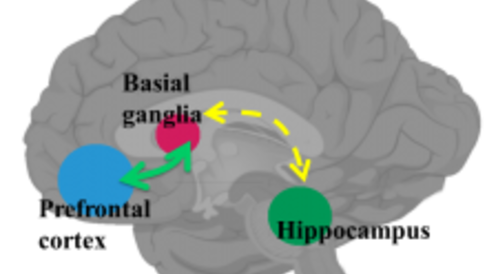Learning to predict in ageing and early dementia.

Learning the statistics of the environment is critical for predicting upcoming events. However, little is known about how we translate previous knowledge about scene regularities to sensory predictions. Here, we ask whether this ability is maintained in healthy older adults and patients with mild cognitive impairment due to Alzheimer’s disease (MCI–AD). We tested the ability of MCI–AD patients and age- matched controls to predict the orientation of a test stimulus following exposure to sequences of leftwards or rightwards oriented gratings. Our behavioral results demonstrate that exposure to temporal sequences without feedback facilitates the ability to predict an upcoming stimulus in both MCI–AD patients and controls. Our fMRI results provide evidence for the involvement of corticostriatal circuits in learning predictive structures in both young and older learners. In particular, we showed learning-dependent fMRI responses for structured sequences in frontoparietal regions and the striatum (putamen) for young adults. However, for older adults, learning-dependent activations were observed mainly in subcortical (putamen, thalamus) regions but were weaker in frontoparietal regions. Significant correlations of learning-dependent behavioral and fMRI changes in these regions suggest a strong link between brain activations and behavioral improvement rather than general overactivation.
